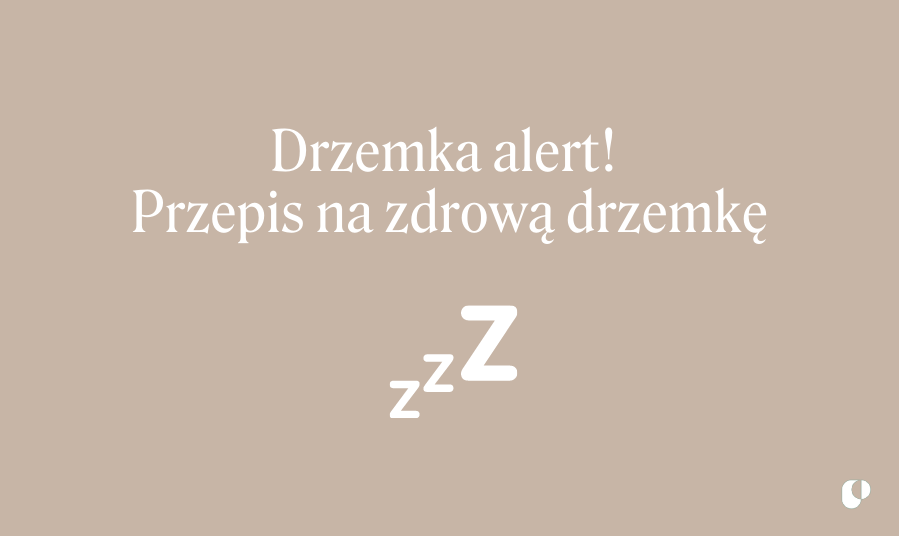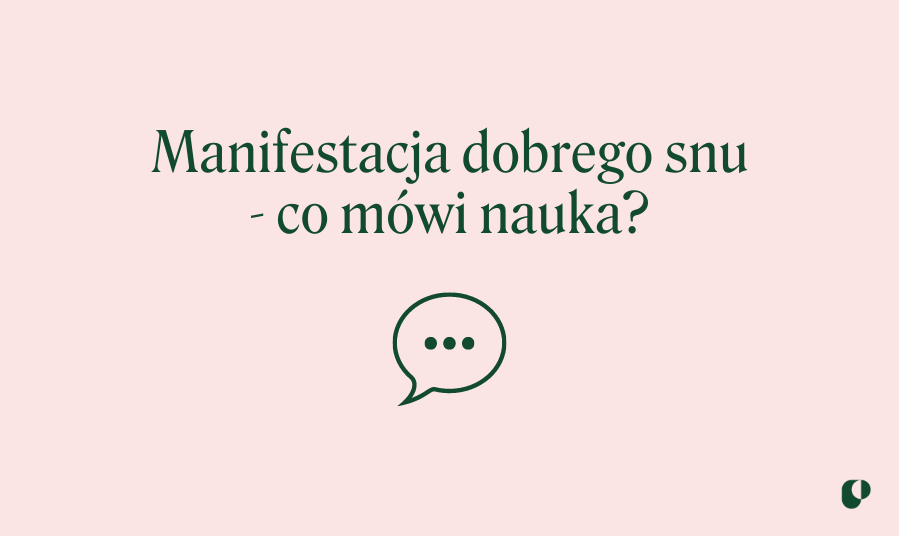snooze alert! Recipe for a healthy nap

Some associate it with small children or seniors. Others associate it with illness, body indisposition or jet lag. What is a nap and what does it give us? According to the International Sleep Report 2021 , only 16% of the population take a nap every day, and its average duration is 51 minutes.
Just like no one taught us how to take care of sleep hygiene, we make a lot of mistakes trying to use the so-called. nap time . We sleep too long, we don't set the alarm clock or we hope that short naps will replace our night's sleep. You know that feeling when closing your eyes "for a moment" ended with two hours of deep sleep, from which you wake up even more tired? So we take our good sleep wand and disenchant the subject. Ready?
What is a nap?
A nap is a short sleep during the day , usually to rest and recharge your batteries. According to neuroscientist Andrew Huberman The ideal nap length is 20-30 minutes . Prolonged sleep can cause the REM phase ( rapid eye movement ) in which we usually dream. Then, when we wake up, we may feel disoriented and exhausted. Another solution is a 90-minute nap, which is one full sleep cycle, but it's a bit harder to find time for it in a busy schedule.
5 things that a nap will give you
1. Energy boost
When we feel sleepy, the first thought is rather a dose of caffeine, while sleep works even more effectively. A short nap reduces fatigue, improving our creativity, memory and learning ability.
2. Better mood and stress reduction
Studies have shown napping people to be more tolerant of frustration and regulate the production of cortisol (the stress hormone), making them feel more emotionally stable .
3. Memory improvement
Admit it, who once put a book under the pillow so that knowledge "magically" found its way to the brain? While this method is unlikely to work, cutting a nap will allow you to remember the material better, affecting both short-term and long-term memory.
4. Health
The most commonly perceived link between napping and health is its beneficial effect on the heart , immune system , reduction of the risk of cognitive dysfunction and general well-being .
5. Better sleep at night
For sleep problems, naps during the day are often recommended - both because of the positive effect on night rest and the reduction of the noticeable effects of lack of sleep. This applies to problems with insomnia and other disorders .
Types of naps
Contrary to appearances, the catalog of naps is much wider than "napping after a hard day". There are several different types of naps, depending on their purpose:
- Recovery nap - compensating for the poor sleep of the previous night.
- Preventive nap – especially popular among shift workers. It is designed to prepare for future loss of sleep and prevent drowsiness at work.
- Appetizing nap - for pleasure, relaxation, energy injection.
- Necessary nap - in sick people, in order to provide the body with the energy necessary to fight the disease.
Power nap and coffee nap
Power nap is a short nap that was created to popularize the use of naps at work to improve its efficiency. It lasts 10-20 minutes and its benefits are usually felt immediately after waking up.
Coffee nap, i.e. a caffeine nap, works very similarly, except that it is necessary to drink coffee before falling asleep. 20 minutes is the ideal time to allow caffeine to cross the blood-brain barrier. As a result, we get the maximized benefits of both sleep and coffee.
Recipe for a successful nap
We know we need, we feel encouraged, but how do we go about it? Contrary to appearances, it is not enough to lie down on the bed and just fall asleep. In order for a short sleep to retain its benefits and be effective, you should remember a few basic rules that together create a recipe for a successful nap. Prepare the ingredients and rush to bed to check the effects.

- A pinch of the right time
Less is more - a shorter nap will bring you the most benefits. If you can't afford one sleep cycle of around 90 minutes, limit yourself to 20-30 minutes.
- Alarm
If you don't have the supernatural ability to wake up at the exact time you set, set an alarm. Add a few minutes to fall asleep and put the alarm clock away from the bed. Thanks to this, you will not turn it off by turning over to the other side.
- A bit of the right time
Late naps can make it difficult to fall asleep at night. Optimally, it is said to find a time between 13.00 and 15.00.
- An environment that supports sleep
Comfortable Plantula under the head (a handy little pillow is recommended for naps!), a pillow with linseed and lavender on the eyes, and silence, darkness and peace. You can fall asleep!
Additional ingredients:
Relaxation - if you can't fall asleep, focus on your breathing and don't think that time is passing and you are still awake. Don't make a to-do list, just try to relax. If you don't fall asleep, it's hard, after all , not every solution is for everyone. It's important that you gave yourself a moment of rest.
Is napping for everyone?
Life would certainly be simpler if we could recommend something to everyone without exception, but unfortunately for us (or maybe lucky?) - this is not the case. We differ in gender, age, type of work, daily schedule and level of physical activity. All these things mean that we may need something a little different. If you've tested various types of naps on yourself, following generalized guidelines, and after waking up you feel worse than before - this solution may not be for you. When you wake up disoriented, and your physical and cognitive performance is reduced for some time - try something else. In some people, naps can also cause problems with falling asleep at night, even if taken early enough. Instead, try deeply relaxing yoga nidra (find it here: CLICK ) or the NSDR (non-sleep deep rest) protocol ( CLICK ).
Trivia
Usain Bolt (world record holder in the 100 and 200 m sprints) was taking naps before his greatest achievements. This took place both before breaking the world record and before the Olympic finals, where he won gold medals.
Energy naps (so-called power naps) were created to prevent plane crashes. All this due to the high frequency of microsleep in pilots, extreme fatigue, and a decrease in concentration, which in turn had deplorable consequences. The option to take a nap on long-haul flights is currently available in many airline companies around the world.
Finally, a proposal for a small experiment.
Don't worry, we'll be testing only on ourselves, and it's such a wonderful thing as sleep. Try scheduling a nap and putting it on your calendar. Although sometimes it seems to be stuffed to the limit (yes, we struggle with it too!), we guarantee that the efficiency of work after a nap will increase significantly. This means that you won't "lose" (however surreal it sounds) time to sleep, but you will save by doing your tasks much more efficiently at the same time. Observe and be mindful of what serves you or not.SOURCES:
Dr. Matthew Walker: The science & practice of perfecting your sleep
Walker M. (2019). Why do we sleep. Discovering the power of sleep and dreams
2021 International Sleep White Paper - Zepp Health
Optimal nap time and nap duration | Andrew Huberman and Lex Fridman
Jennifer R. Goldschmied, Philip Cheng, Kathryn Kemp, Lauren Caccamo, Julia Roberts, Patricia J. Deldin,
Napping to modulate frustration and impulsivity: A pilot study. 2015
Gujar N, McDonald SA, Nishida M, Walker MP. A role for REM sleep in recalibrating the sensitivity of the human brain to specific emotions. Cereb Cortex. 2011
Leong RLF, Yu N, Ong JL, Ng ASC, Jamaluddin SA, Cousins JN, Chee NIYN, Chee MWL. Memory performance following napping in habitual and non-habitual nappers. sleep. 2021
Ribeiro AL, Otto CM. Heartbeat: the potential power of naps for cardiovascular health. heart. 2019
Faraut B, Nakib S, Drogou C, Elbaz M, Sauvet F, De Bandt JP, Léger D. Napping reverses the salivary interleukin-6 and urinary norepinephrine changes induced by sleep restriction. J Clin Endocrinol Metab. 2015
Dhand R, Sohal H. Good sleep, bad sleep! The role of daytime naps in healthy adults. Curr Opin Pulm Med. 2006
Takahashi M. The role of prescribed napping in sleep medicine. Sleep Med Rev. 2003
Rosenthal TC, Majeroni BA, Pretorius R, Malik K. Fatigue: an overview. Am Fam Physician. 2008
SleepScore Labs, How Long Should a Nap Be?
Sleep Foundation, Napping
https://zdrowie.pap.pl/psyche/jaka-drzemka-dobra-dla-mozgu
https://www.mayoclinic.org/healthy-lifestyle/stress-management/in-depth/stress/art-20046037
0 comments



